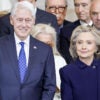Last night’s nail-biter in Iowa marked the beginning of election year 2012. And with Americans heading to the polls — next in New Hampshire, then South Carolina and beyond — they will hope to rely on the integrity of the election system to ensure that every legitimate vote counts and that fraud is not the deciding factor on the local, state or national level.
Unfortunately, despite all the technological advances in our modern democracy, voter fraud still occurs, and yet there is still resistance to one very simple tool that could help eradicate it — voter ID. Some, like The New York Times, say that voting fraud is a myth, that “there is almost no voting fraud in America.” But as Heritage senior legal fellow Hans von Spakovsky explains, voter fraud is all too common in America today:
The fraud denialists also must have missed the recent news coverage of the double voters in North Carolina and the fraudster in Tunica County, Miss. — a member of the NAACP’s local executive committee — who was sentenced in April to five years in prison for voting in the names of ten voters, including four who were deceased.
And the story of the former deputy chief of staff for Washington mayor Vincent Gray, who was forced to resign after news broke that she had voted illegally in the District of Columbia even though she was a Maryland resident. Perhaps they would like a copy of an order from a federal immigration court in Florida on a Cuban immigrant who came to the U.S. in April 2004 and promptly registered and voted in the November election.
Even former liberal Supreme Court Justice John Paul Stevens agrees. Stevens wrote in a 6-3 majority opinion upholding an Indiana voter ID law: “That flagrant examples of [voter] fraud…have been documented throughout this Nation’s history by respected historians and journalists…demonstrate[s] that not only is the risk of voter fraud real but that it could affect the outcome of a close election.”
Given the incidence of voter fraud — and the simplicity of requiring voters to present a valid ID in order to be able to vote — it’s not surprising that 70 percent of likely U.S. voters believe that voters “should be required to show photo identification such as a driver’s license before being allowed to cast their ballot,” according to a recent Rasmussen poll. Meanwhile, only 22 percent of Americans are opposed to the requirement.
Despite the fraud — and the support for voter ID measures — Attorney General Eric Holder intends to examine new state voter ID laws for potential racial bias. Von Spakovsky writes that the allegations of bias are baseless, and there is evidence to prove it. In Georgia, which enacted a photo ID law before the 2008 election, the number of African American voters increased after the new law went into effect. “According to Census Bureau surveys,” von Spakovsky writes, “65 percent of the black voting-age population voted in the 2008 election, compared with only 54.4 percent in 2004, an increase of more than ten percentage points.”
On top of all that, the number of people who don’t already have a photo ID is incredibly small. An American University survey in Maryland, Indiana, and Mississippi found that less than one-half of 1 percent of registered voters lacked a government-issued ID, and a 2006 survey of more than 36,000 voters found that only “23 people in the entire sample–less than one-tenth of one percent of reported voters” were unable to vote because of an ID requirement. What about those who don’t have photo IDs? Von Spakovsky notes that “every state that has passed a voter ID law has also ensured that the very small percentage of individuals who do not have a photo ID can easily obtain one for free if they cannot afford one.”
The American people value the integrity of their elections, and they overwhelmingly support voter ID requirements to make sure that Election Day is as fair, honest, and legal as possible. Still, though, there is resistance and predictions of massive disenfranchisement if voter ID laws continue to be implemented. The evidence, however, proves otherwise.
Quick Hits:
- After last night’s caucuses in Iowa, Republican presidential candidates will head to New Hampshire for the “first in the nation” primary next Tuesday, to be followed by races in South Carolina and Florida.
- President Obama is headed to Cleveland, Ohio, today with a speech focused on the economy. It’s his first trip since his 10-day Hawaii vacation.
- California’s proposed $98.5-billion bullet train hit another road block yesterday when a panel of experts recommended postponing the project because it “is not financially feasible.”
- Activists are accusing Syria’s government of misleading Arab observers who are in the country as part of a plan to end the government’s violent crackdown on dissent.
- Indiana lawmakers are bracing for another high-profile fight over a right-to-work bill when the legislative session opens Wednesday. Rob Bluey reports at Heritage’s Scribe.































118 Replies to “Morning Bell: Voter ID Prevents Election Fraud”